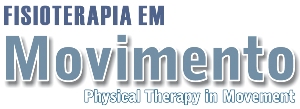Abstract
Introduction:
Parkinson’s disease causes progressive decline of motor and cognitive functions leading to a decrease in the independence and quality of life of people affected. Training through virtual reality is proving effective, as it promotes cognitive and motor stimuli, which can be beneficial for these individuals, improving their quality of life.
Objective:
To analyze the effects of virtual reality on the cognition and quality of life of patients with Parkinson’s disease.
Methods:
A total of 11 individuals with a mean age of 65 (9.6) years classified in stages 1 to 3 of the Hoehn and Yahr Scale participated in this study. The subjects participated in fourteen sessions lasting one hour, twice a week for seven weeks in which they practiced four games of Kinect Adventures!. They were evaluated before, immediately after the intervention and 30 days after the intervention. Cognition was assessed using the Montreal Cognitive Scale (MoCA) and quality of life was assessed using the Parkinson’s Disease Questionnaire (PDQ-39).
Results:
Only PDQ-39 activities from the domain of daily living demonstrated a statistically significant improvement. The MoCA scores, in general, remained the same.
Conclusion:
Although virtual reality training promoted improvement in PDQ-39 activities in the daily life domain, it was not effective in the other domains assessed for quality of life and cognition.
Keywords:
Parkinson’s Disease; Virtual Reality Exposure Therapy; Quality of Life; Cognition
